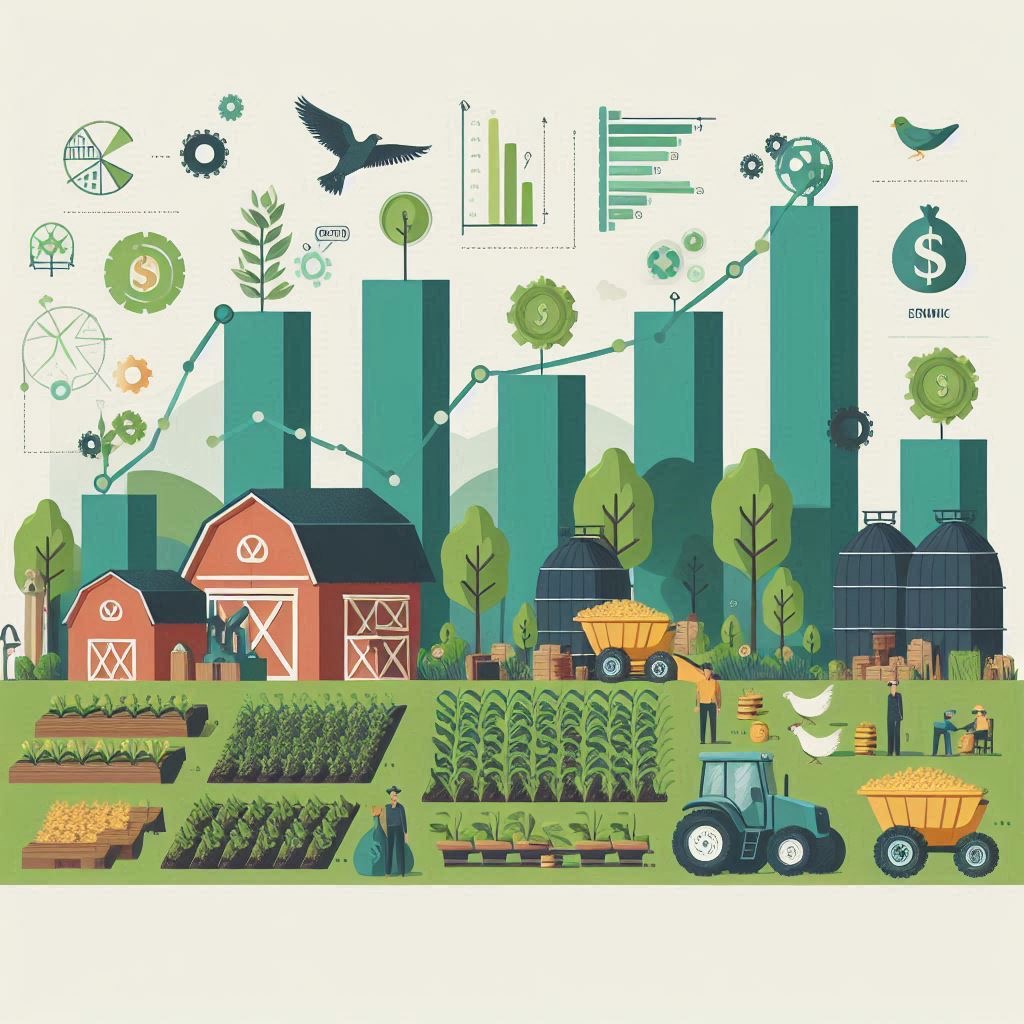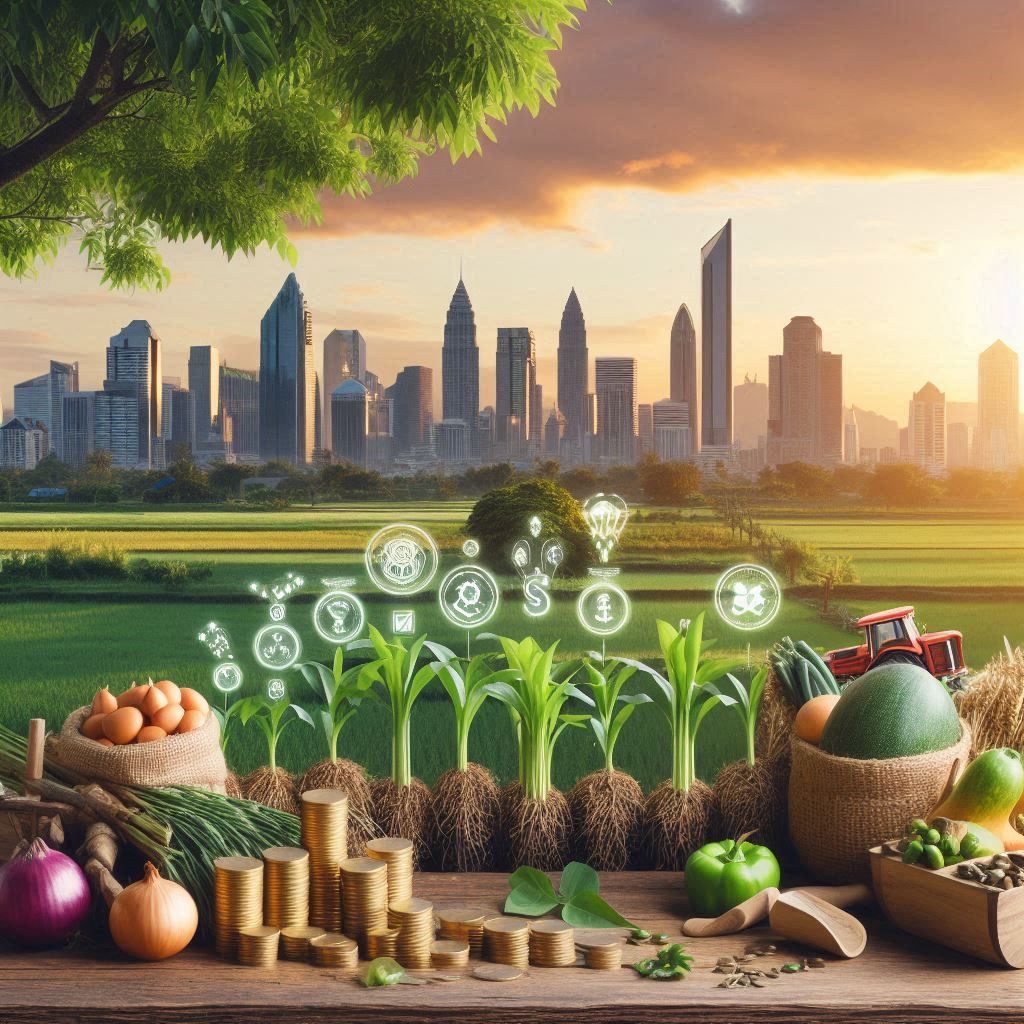
Застосування глауконіту. Зелений мінерал, що працює довго на користь ґрунту
Глауконіт — це природний калійвмісний залізо-силікат (шаруватий силікат/філосилікат), який може містити не лише K і Fe, а й Al та інші домішки в кристалічній решітці.

Органічне землеробство останніми роками набирає популярності у світі, зокрема й в Україні. Це зумовлено зростанням попиту на екологічно чисті продукти, посиленням екологічної свідомості споживачів та перспективами експорту органічної продукції. Інвестиції в цей сектор стають дедалі привабливішими як для локальних, так і для міжнародних інвесторів. У цій статті розглянемо сучасний стан ринку органічного землеробства, ключових гравців і перспективи розвитку.
Стан ринку органічного землеробства
Органічне землеробство передбачає вирощування сільськогосподарських культур без використання синтетичних добрив, пестицидів та генетично модифікованих організмів (ГМО). Згідно з даними IFOAM, глобальний ринок органічних продуктів у 2023 році досяг обсягу понад $150 млрд. Україна є одним із лідерів Європи за площею сертифікованих органічних земель — близько 470 тис. гектарів.
Основні напрями експорту української органічної продукції включають зернові (пшениця, кукурудза), олійні культури (соняшник, соя), ягоди та мед. Основними ринками збуту є країни ЄС, США та Швейцарія.

Ключові гравці ринку
На ринку органічного землеробства України працюють як великі агрохолдинги, так і малі фермерські господарства. Серед найбільш відомих компаній:
Крім того, зростає кількість невеликих фермерських господарств, які знаходять своїх клієнтів завдяки локальним ринкам та онлайн-продажам.
Перспективи інвестицій
Інвестування в органічне землеробство обіцяє довгострокові прибутки завдяки стабільному попиту на екологічно чисті продукти. Основні причини залучення інвесторів:
Цього року в Україні діє багато програм підтримки органічних виробників, включаючи “Онлайн-торгівля органічними продуктами в Україні”, переробників в т.ч. “Органічна переробка та торгівля: їжа нового покоління” та експортерів, “Особливості експорту органічної продукції”. Крім цього, постійно працює і допомога в сертифікації «Німецько-українська співпраця в галузі органічного сільського господарства»

Виклики для інвесторів
Через війну органічний ринок України зазнав значних втрат, скоротившись на 35%. Однак галузь поступово відновлюється, і запуск Державного реєстру органічних операторів у серпні 2023 року став важливим кроком уперед. Цей реєстр дозволяє забезпечити прозорість та контроль за виробництвом органічної продукції, що підвищує довіру до українських виробників як у країні, так і за кордоном.
Сьогодні в Україні працюють понад 170 сертифікованих операторів, які відповідають чинному законодавству. Зростання активності у 2023 році порівняно з 2022-м свідчить про поступове відновлення ринку навіть за складних умов.
Цілі Європейського зеленого курсу — розширити частку органічних земель до 25% до 2030 року. Україна також має плани збільшити цю частку до 3%. Це завдання реалістичне, але потребує підтримки фермерів, інвестицій та нових технологій.
Однак цей сектор має свої ризики: висока вартість сертифікації, тривалий період окупності та складність переходу з традиційного на органічне господарство.
Висновок
Інвестиції в органічне землеробство в Україні – це перспективний напрямок із великим потенціалом. Попит на органічну продукцію продовжує зростати як на внутрішньому, так і на зовнішньому ринках. Успішна співпраця з ключовими гравцями, грамотна стратегія та облік ризиків допоможуть інвесторам отримати значні прибутки та зробити свій внесок у сталий розвиток сільського господарства.

Глауконіт — це природний калійвмісний залізо-силікат (шаруватий силікат/філосилікат), який може містити не лише K і Fe, а й Al та інші домішки в кристалічній решітці.

Екологізація агро — це не мода, а реакція на факт того, що надлишкові нутрієнти стають джерелом забруднення ґрунтів і вод, втрати біорізноманіття

Дигестат з біовугіллям і глауконітом — інноваційний органо-мінеральний композит для зменшення втрат поживних елементів, пролонгованого живлення рослин і підвищення родючості ґрунтів.